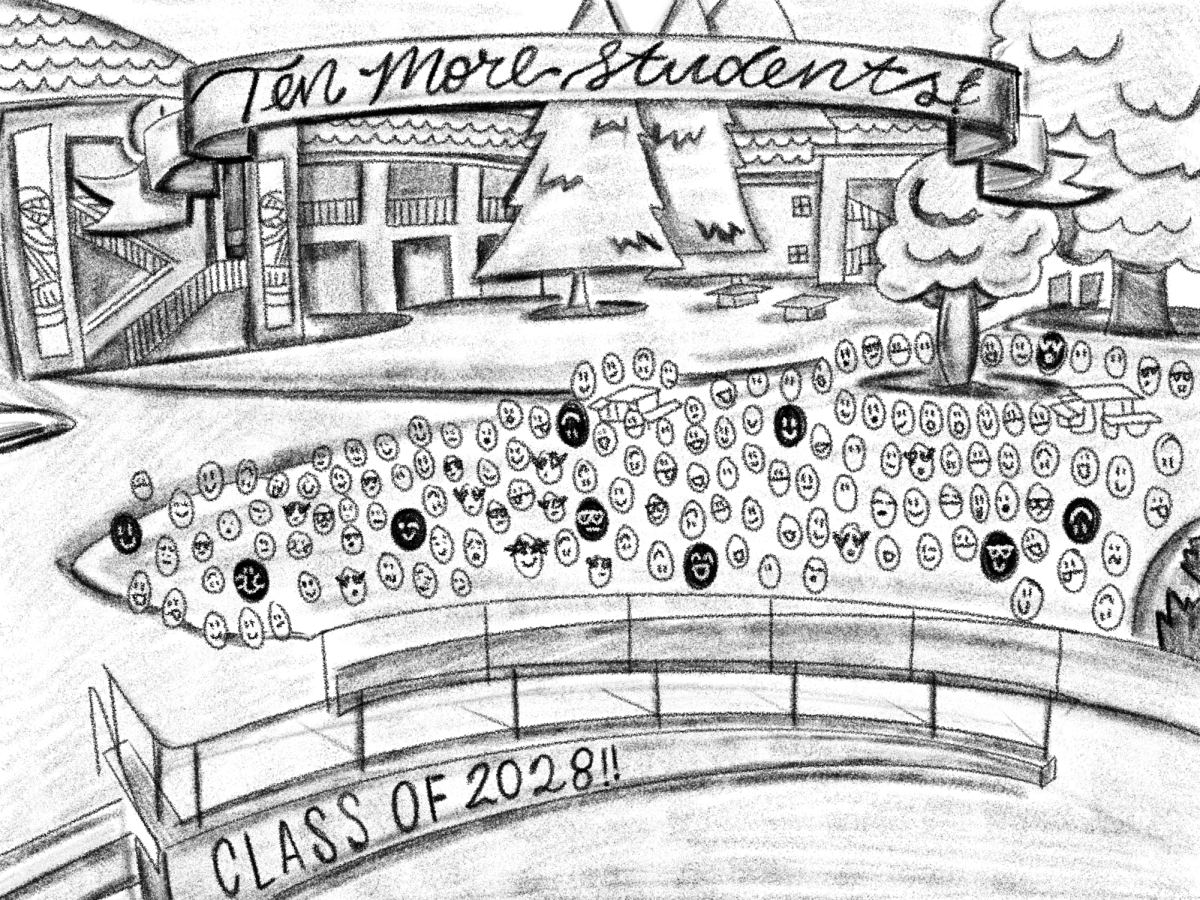In June of 2023, the U.S. Supreme Court issued one of its most anticipated rulings of the year — it banned colleges from considering the race of an applicant.
17 days before the ruling, the Pew Research Center released the results from a poll that asked respondents if they approved of colleges using race and ethnicity as factors when deciding who to admit. 50% of the respondents disapproved of the practice, while only 33% approved.
Proponents of affirmative action like senior Amory Healy argue that it can help disadvantaged students who don’t have the opportunity to hire SAT tutors and attend after-school activities. “I think that affirmative action definitely gives them the opportunity to have a more level playing field,” she said.
Another student — a boy who prefers for his name to not be mentioned, and who will be referred to as Mateo — sees some upsides of affirmative action. “The benefit would definitely be a more diverse student base, especially because if you look at the demographics of our country, it’s predominantly white,” Mateo said. However, he ultimately disapproved of the practice. “I feel like it’s just combating inequality with more inequality, which I don’t think works,” Mateo said.
Some schools, typically private, also look at a student’s family history with the school during the admissions process, often favoring students with relatives who attended the school. This process is called legacy admission or legacy preference and remains unaffected by the Supreme Court’s affirmative action ruling.
Many colleges implement legacy preferences because they increase the amount of donations the college receives, as people are more likely to donate and feel closely attached to a school if many of their family members went to it. However, 75% of Americans disapprove of the practice, a 2022 Pew Research Center poll found.
Mateo believes that his family could have benefited from legacy admissions at Menlo as his sibling was admitted into the school after he was. “I think the idea of it is kind of strange, like just because you have a sibling who got in doesn’t mean you should be treated with priority,“ he said. “I get why they do it because they want to keep people at the school but I don’t think it should give someone a competitive edge.”
Junior William Edwards, whose father and grandfather attended Menlo, perceives legacy admissions as unmeritocratic and disagrees with the policy for the same reason he disagrees with affirmative action. “[A student with a legacy connection] has an unfair advantage over maybe a more deserving student,” Edwards said. “I don’t think one student, just because their parents went to the school, should have a priority over another [student].”
While Mateo believes that affirmative action and legacy admissions do not adhere to meritocratic principles, Healy’s views vary depending on the consideration. She approves of affirmative action but disagrees with the use of legacy preferences.
“It’s getting in off of someone else’s merits, like your grandparents or parents,” Healy said. “I think that in regards to race, it isn’t just students that just get in because [colleges] see the race and they click admit; it is students who are on the same playing field as these other students. It’s more just recognizing what they potentially had to have gone through [because of their race] to get to where they are.”
Regarding the college admissions system as a whole, Healy and Mateo have fundamentally different views on the factors that should be considered. Healy wishes that admission officers used a more holistic approach to students.
“I think that college admissions as a whole kind of needs a rewrite because [it considers] a very marginal view of a person,” Healy said.
Mateo, on the other hand, believes that schools should solely consider merit, such as grades and achievements. “I don’t think that anyone should be promoted over anyone else. Like that’s the fundamental issue I have,” he said.










